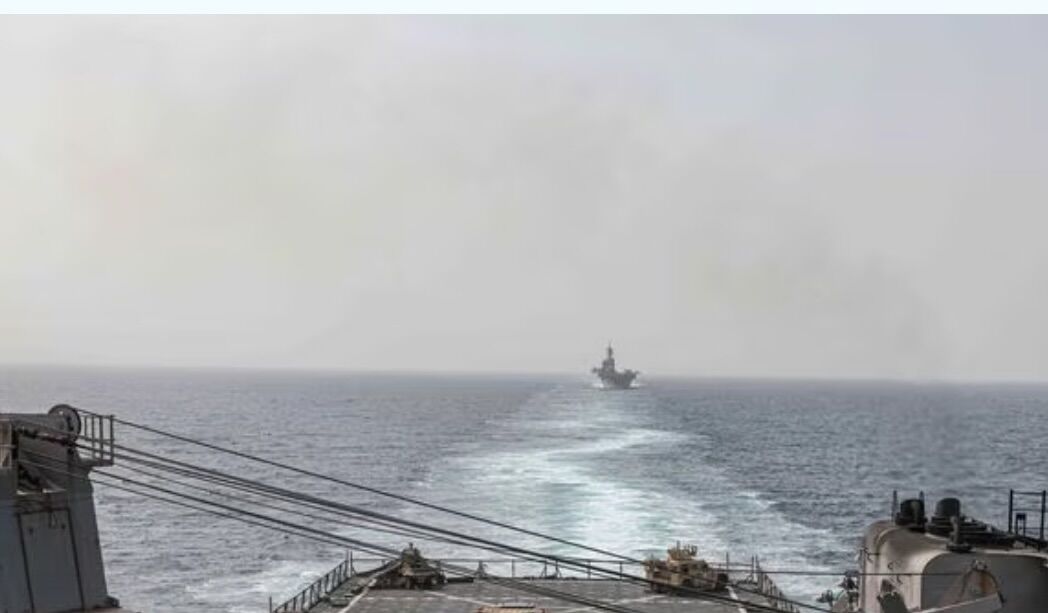US Military Intercepts Houthi Missile Attack on Commercial Ship in Red Sea
US military confirms interception of anti-ship ballistic missiles by Yemen's Houthi rebels in Red Sea, resulting in deaths of armed crew members. Concerns over global trade disruptions rise.
The US military has confirmed the interception of two anti-ship ballistic missiles launched by Yemen's Houthi rebels in the Red Sea toward a container ship, and that several armed crew members were killed in a thwarted attack by four boats on the same ship, the Maersk Hangzhou. The ship remained seaworthy with no reported injuries. The Houthi rebels, who are backed by Iran, have claimed responsibility for the attacks on ships in the Red Sea, attributing them to links with Israel or voyages to Israeli ports. They assert that these attacks are in response to Israel's air-and-ground offensive targeting the Gaza Strip after an October 7 attack by the Palestinian militant group Hamas.
The US Navy helicopters responded to the distress call issued by the attacked ship and issued verbal warnings to the attackers. However, the small boat crews opened fire on the helicopters, prompting self-defense measures. Three of the four boats were sunk, and the crews were killed, while the fourth boat fled without causing damage to US personnel or equipment. This incident marked the 23rd illegal attack by the Houthis on international shipping since November 19 despite international efforts to protect vessels in the region.
The commercial ship targeted, the Maersk Hangzhou, is registered to Singapore and operated and owned by a Danish firm, and was attacked with small arms and mounted weapons. The US Central Command (Centcom) stated that it was the second attack on the Hangzhou in 24 hours. The rise in Houthi attacks over several weeks has led many shipping firms, including Maersk, to divert their vessels away from the Red Sea, resulting in ships traveling around the Horn of Africa to reach the Suez Canal in Egypt.
The US Department of Defense reported that the Houthis had carried out over 100 drone and ballistic missile attacks since November, targeting 10 commercial ships linked to more than 35 different countries, and the situation has led to concerns over potential disruptions to global trade and rise in prices as the Red Sea is one of the world's most important shipping lanes for oil and liquefied natural gas shipments produced in the Middle East.




